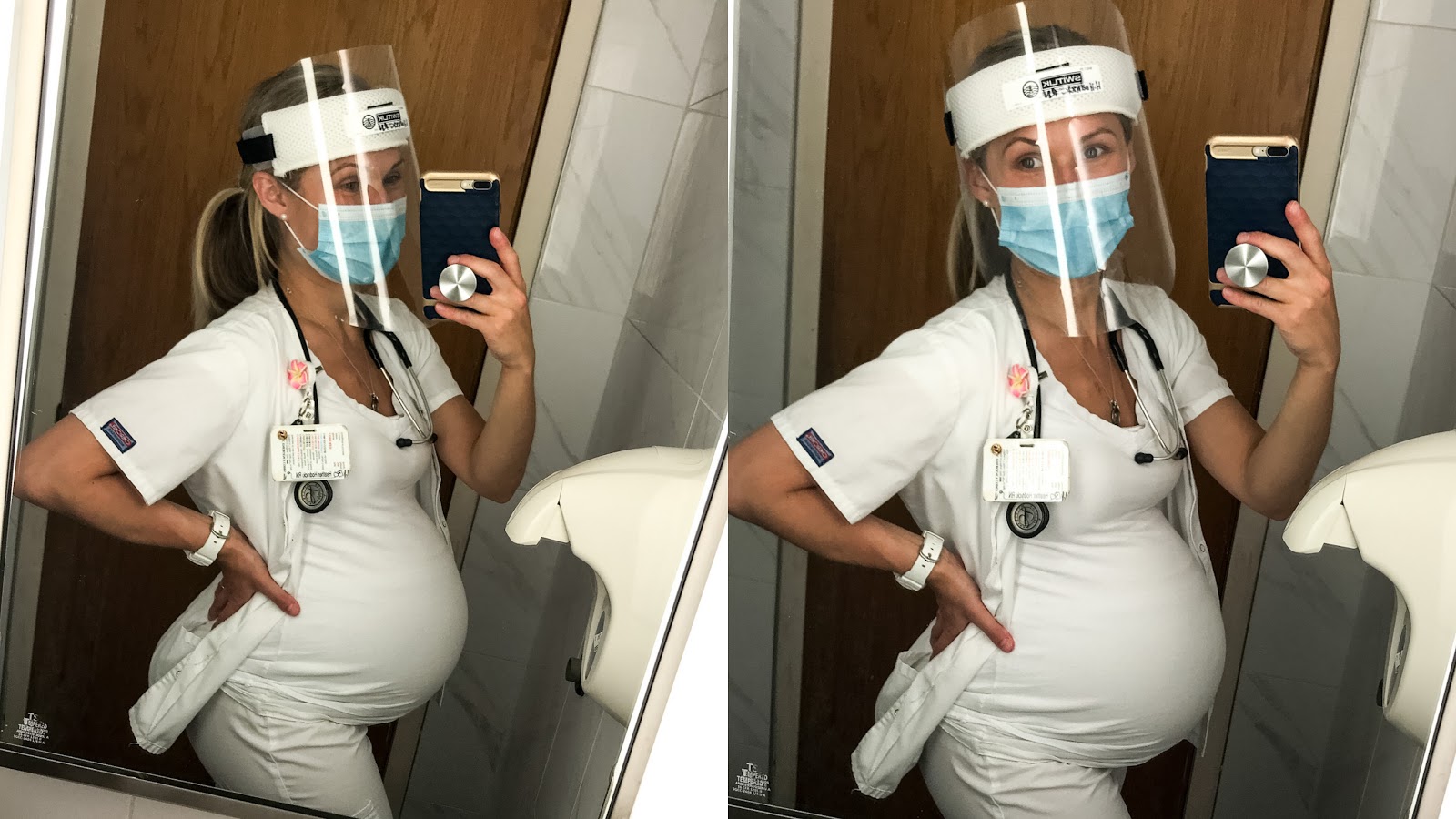
A Nurse Shares What It’s Like to Be Pregnant and Working on the Front Lines
“The most stressful part was not knowing how the virus would affect my unborn child.”
by Heather HodnickiOur frontline health workers are the first responders in the fight against the coronavirus. These health professionals will also be our guides and community allies on the road to our full recovery as a healthy nation. Thrive Global is sharing their inspiring stories.
I am a registered nurse working in an acute/subacute facility administering direct patient care.
After lots of trial and error the facility has separated units to COVID positive patients and suspected positive COVID patients. Patients who have been proven COVID negative are then admitted or transferred to other floors.
The hardest part of this COVID pandemic was feeling like a deer in headlights. I was worried for my unborn child, myself & my family as all facilities tried to figure out the most effective way to protect their employees & patients. The most stressful part was not knowing how the virus would affect a mother and her unborn child.
Initially, there were no “policies in place” regarding expecting mothers. After verbalizing my concerns, my facility decided to not assign known COVID positive patients to me. Yet there were no policies or guidelines in place for suspected positives or admissions coming in.
As of right, now we test everyone coming into our facility. Patients who are proven negative after a nasopharyngeal swab are then admitted to the unit I am working on. It is also mandatory for all employees from dietary to nursing, therapy and employees working in offices to wear a mask and face shield during working hours. All patients are provided masks to wear when employees enter their rooms. There is also a “no visitors allowed” policy as of right now.
This time has been very stressful for me physically being in my third trimester of pregnancy. As we know, pregnancy generally causes women to feel short of breath & exhausted. Having to wear a mask & face shield on top of that for eight hours a day, Monday through Friday makes working exceptionally more difficult.
Emotionally things have definitely taken a toll. Pregnancy hormones on top of a pandemic makes things more difficult and has me feeling more anxious than ever.
In these circumstances, I’m distantly trying to still be available for (my patients) mentally and psychologically. I have seen a lot of patients fall deeper into depression, not having family and friends to support them during their recovery. This has a major impact on rehabilitation for some.
I protect my own well being by coming home from work, stripping out of my hospital clothing, putting it directly in the washer and then jumping directly in the shower. I’m constantly aware of where my hands are, what I am touching and who is around me. Every day it’s emotionally difficult that when I come home, I have to dodge my husband & Toddler from their warm welcoming hugs and kisses.
One thing that has helped me stay positive and resilient is doing somewhat of a “meditation” during my daily “after work showers” to relax, close my eyes, and let the hot water hit the back of my head. The steam helps clear my nose and allows me to breathe clean and fresh air. I try to let go of all of my worries from the work day. My shower after work is how I clock out mentally to have a relaxed evening with my family, safe in our home together.
Click here for information about how Thrive Global is supporting our healthcare workers on the front lines of the coronavirus pandemic, and find out how you can support the cause by donating to #FirstRespondersFirst.
If you’re a first responder and want to share your story, email us at firstresponderstories@thriveglobal.com. Please note, a Thrive editor may contact you to hear more about your story, and your submission may be edited for length or clarity before publication. By submitting your story, video, or pictures, you are agreeing for Thrive to publish your submission(s) if selected, and agreeing to the Thrive Global Privacy Policy. You can find more guidelines here.
— Published on May 29, 2020